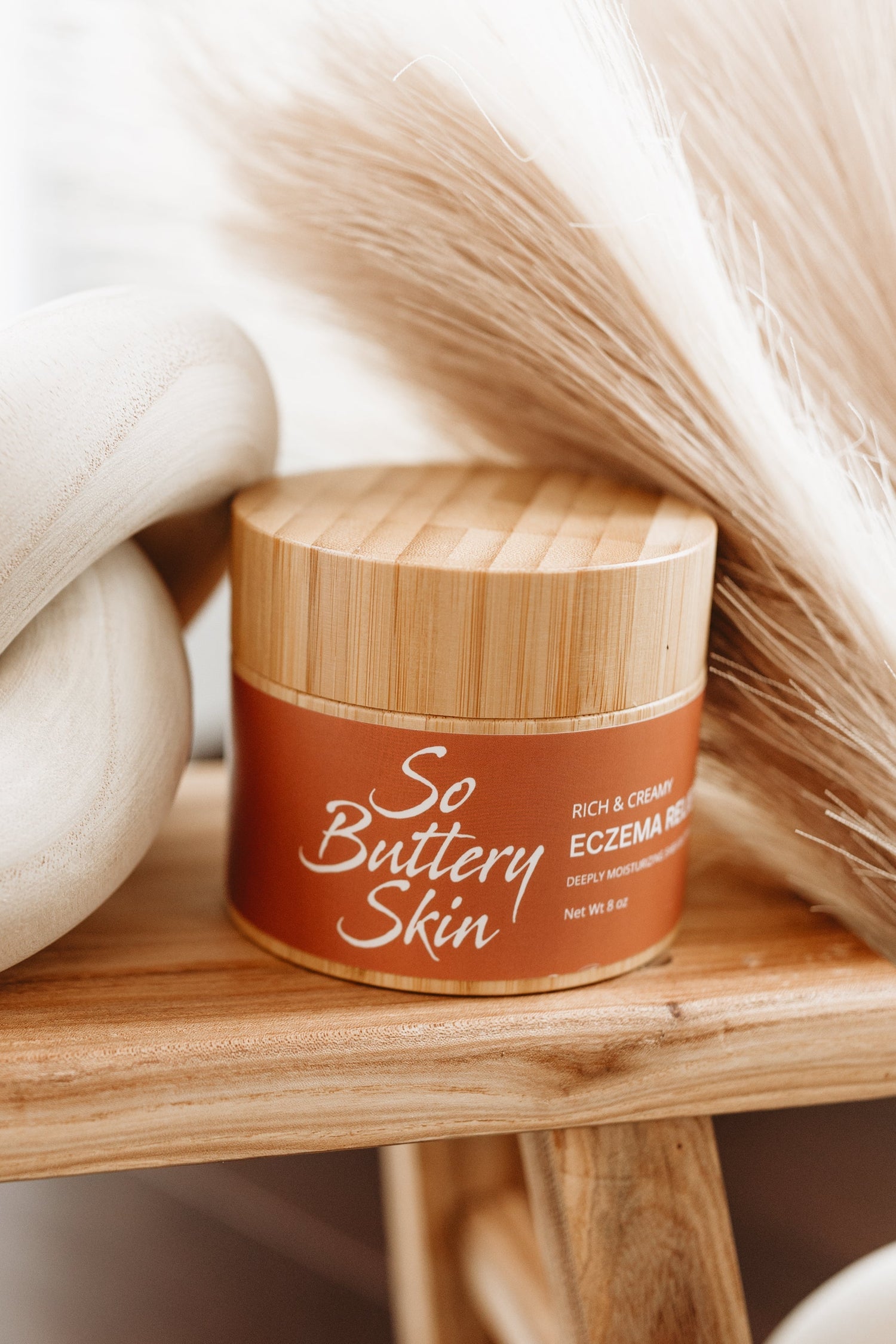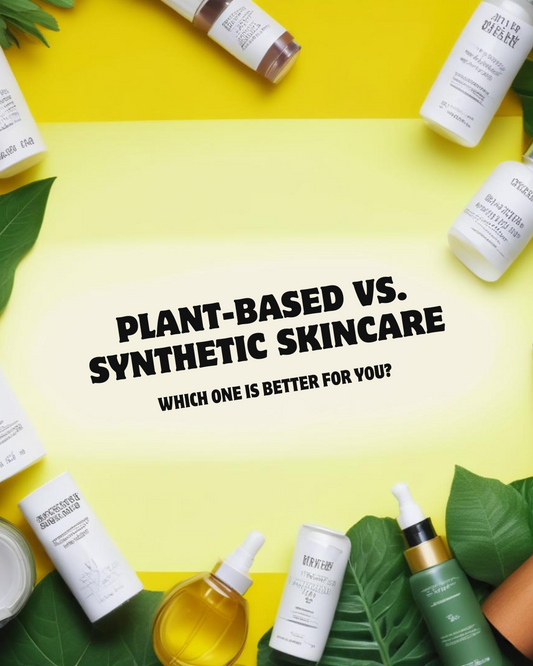When it comes to keeping your skin hydrated and healthy, body butter and lotion are two popular choices. But which one is better for dry, sensitive, or eczema-prone skin? Let’s break down the key differences, benefits, and how to choose the best option for your skin type.
What’s the Difference Between Body Butter and Lotion?
Body Butter:
✅ Thicker, richer consistency
✅ Made with natural butters (like shea, cocoa, or mango) and oils
✅ Deeply hydrates and locks in moisture
✅ Best for very dry or eczema-prone skin
Lotion:
✅ Lighter, more water-based formula
✅ Absorbs quickly without feeling greasy
✅ Contains a mix of water, humectants, and light oils
✅ Better for daily hydration on normal or slightly dry skin
Which One is Better for Different Skin Concerns?
1. Dry Skin: Body Butter is the Winner
If your skin is flaky, tight, or rough, body butter provides intense hydration. Its thick texture forms a protective barrier, preventing moisture loss. Key Ingredients to Look For:
- Shea Butter: Deeply nourishes and soothes dry patches.
- Cocoa Butter: Rich in fatty acids to smooth and hydrate skin.
- Avocado Oil: Packed with vitamins A, D, and E to restore moisture.
Lotion can work for mild dryness, but it’s often not rich enough for extreme dryness or winter skincare.
2. Sensitive Skin: Choose Fragrance-Free Body Butter or Lotion
Sensitive skin reacts easily to synthetic fragrances, alcohols, and preservatives. A fragrance-free body butter with gentle plant-based oils (like jojoba or almond oil) is best. However, a lightweight, fragrance-free lotion may work if your skin doesn’t tolerate thick textures.
Best Ingredients for Sensitive Skin:
- Mango Butter: Non-comedogenic and soothing.
- Jojoba Oil: Mimics natural skin oils, reducing irritation.
- Oat Extract: Calms inflammation and redness.
3. Eczema Care: Body Butter for Deep Healing
Eczema-prone skin needs intensive nourishment and skin barrier repair. Lotions often contain preservatives and water-based ingredients that evaporate too quickly, leaving eczema patches dry again. Body butter, especially shea butter-based formulas, provides long-lasting hydration and reduces flare-ups.
Best Ingredients for Eczema-Prone Skin:
- Shea Butter: Anti-inflammatory and highly moisturizing.
- Calendula Oil: Soothes itching and irritation.
- Coconut Oil: Provides antibacterial protection for broken skin.
4. Everyday Use: Lotion for Convenience, Body Butter for Extra Care
For daily hydration, lotion is convenient, as it absorbs quickly. However, for nighttime skincare or colder months, body butter ensures lasting moisture.
How to Use Body Butter and Lotion Effectively
- For Dry Skin: Apply body butter after showering, while skin is still damp, to seal in hydration.
- For Sensitive Skin: Choose fragrance-free, non-comedogenic formulations.
- For Eczema: Apply a thick layer of body butter before bed to help repair the skin barrier overnight.
- For Daily Use: Use lotion in the morning for lightweight moisture and body butter at night for deeper hydration.
Final Verdict: Which One Should You Choose?
| Skin Type | Best Choice |
|---|---|
| Extremely Dry Skin | Body Butter |
| Mild Dryness | Lotion |
| Sensitive Skin | Fragrance-Free Body Butter or Lotion |
| Eczema-Prone Skin | Body Butter |
| Daily Hydration | Lotion (Day) + Body Butter (Night) |
Conclusion
Both body butter and lotion have their benefits, but for dry, sensitive, or eczema-prone skin, body butter is the better option due to its rich, nourishing ingredients. If you prefer a lightweight feel, a clean-ingredient lotion may work for daily use. For best results, choose plant-based, chemical-free products that support skin hydration without irritation.




